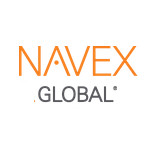Hunton Andrews Kurth LLP has promoted 11 lawyers.
Capital Finance & Real Estate
Matthew R. Halal, New York
Robert A. Rich, New York
Conor M. Shary, Houston
Corporate
James V. Davidson, Richmond
David Dumont, Brussels
Alex R. Velinsky, Charlotte
Beth A. Whitaker, Dallas
Energy & Infrastructure
Geoffrey C. Lorenz, Washington
Litigation
Timothy J. Fazio, Boston
Abigail M. Lyle, Dallas
Tax & ERISA
Jessica N. Agostinho, Washington
Jessica N. Agostinho (Washington) focuses her practice on the complex and evolving area of employee benefits law, including health care reform, tax-qualified retirement plans and executive compensation. She also is highly skilled in handling employee benefits issues arising in corporate transactions. She received her undergraduate degree from Georgetown University Walsh School of Foreign Service and her law degree from Columbia Law School.
James V. Davidson (Richmond) focuses his practice on all aspects of capital markets, mergers and acquisitions, corporate finance, and real estate transactions, with a particular emphasis on REITs. An undergraduate of Miami University, Davidson received his law degree from New York University School of Law.
David Dumont (Brussels) advises large, multinational clients on various aspects of European Union privacy and data protection law and has worked extensively in preparing clients for all aspects of the new EU General Data Protection Regulation. Dumont received his undergraduate and law degrees from the University of Brussels.
Timothy J. Fazio (Boston) is a trial lawyer who maintains a diverse national practice, concentrating in complex commercial litigation as well as corporate and government investigations. Fazio received his undergraduate degree from Hamilton College and his master’s degree from Hofstra University Frank G. Zarb School of Business. He earned his law degree from Hofstra University School of Law.
Matthew R. Halal (New York) practice focuses on advising lenders and investors in all aspects of secured financings, with an emphasis on representing institutional lenders in the origination of commercial mortgage and mezzanine loans. Halal is a graduate of Binghamton University, State University of New York, and received his law degree from New York Law School.
Geoffrey C. Lorenz (Washington) primarily focuses his practice on the acquisition, financing and development of electric-generating facilities employing both conventional and renewable technologies. He received his undergraduate degree from Duke University and earned his law degree from George Washington University Law School.
Abigail M. Lyle (Dallas) focuses her practice on regulatory compliance and defending financial institutions in enforcement actions and litigation related to consumer protection laws. Lyle received her undergraduate degree from Furman University and her law degree from University of Miami School of Law.
Robert A. Rich (New York) primarily represents corporate debtors, secured and unsecured creditors, indenture and securitization trustees, lessors, and other parties in interest in Chapter 11 bankruptcies. Rich received his undergraduate degree from Boston College and his master’s degree from Fordham University Graduate School of Business. He earned his law degree from Fordham University School of Law.
Conor M. Shary (Houston) represents buyers, sellers and developers of commercial real estate, landlords and tenants in office and retail leasing transactions, lenders and borrowers in secured lending transactions and financial institutions in project financings and commercial loans. He received his undergraduate and master’s degrees from the University of Texas at Austin and his law degree from Harvard Law School.
Alex R. Velinsky (Charlotte) has represented borrowers and lenders on a wide variety of structured finance transactions. His particular focus is on financings involving residential and commercial mortgage loans and related assets. Velinsky received his undergraduate degree from Princeton University and his law degree from Columbia Law School.
Beth A. Whitaker (Dallas) focuses on corporate transactions and securities and regulatory representation of commercial banks, holding company, thrifts and other financial institutions, including mergers and acquisitions, joint ventures, debt and equity offerings, and corporate finance transactions. Whitaker received her undergraduate degree from Elon University and her law degree from Charleston School of Law.
 Fitch, Even, Tabin & Flannery LLP will present a free webinar, “Patent Prosecution Options at the USPTO: Tried-and-True or New to You,” featuring Fitch Even attorneys Alan E. Schiavelli and George N. Dandalides.
Fitch, Even, Tabin & Flannery LLP will present a free webinar, “Patent Prosecution Options at the USPTO: Tried-and-True or New to You,” featuring Fitch Even attorneys Alan E. Schiavelli and George N. Dandalides.

